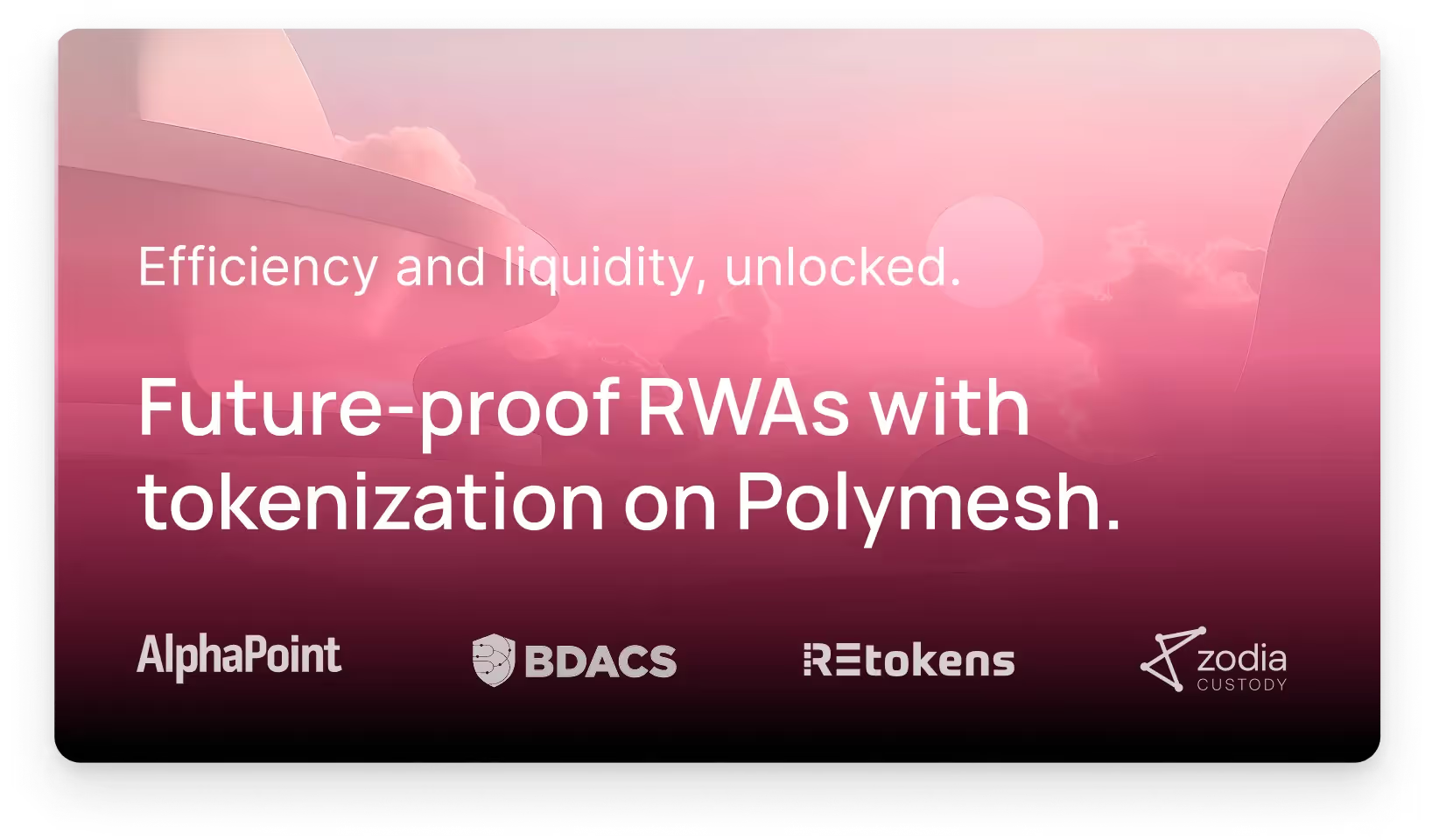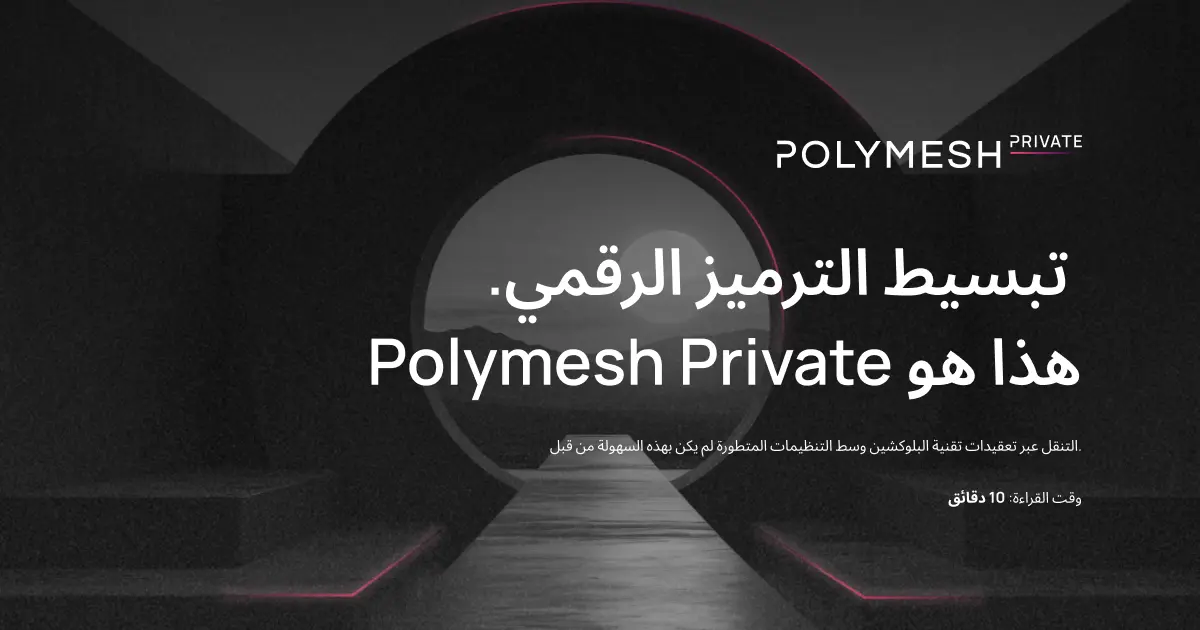POLYX token holder signaling and Polymesh protocol upgrades
Recently, Polkassembly integrated with Polymesh to create the Polymesh Governance Block Explorer.
The Governance Block Explorer enables POLYX token holders to easily signal on proposed improvements and changes to Polymesh, such as the recent upgrade to 5.3 introducing NFTs or the proposal to implement slashing for node operators.
This quick how-to walks you through the signaling/voting process on Polymesh and explains how proposals are implemented once signaling/voting occurs.
How POLYX token holders can submit proposals
POLYX token holders can submit what are called Polymesh Improvement Proposals (PIPs) to propose changes to the chain.
To submit PIPs, POLYX token holders need a Polymesh Wallet connected to a verified Polymesh Account. So, the first step to submitting PIPs on Polymesh is to complete onboarding.
Once onboarded, POLYX holders can submit PIPs on Polymesh via the Polymesh App (https://mainnet-app.polymesh.network/#/rpc).
For further instructions, please visit https://community.polymesh.live/hc/en-us/articles/7686051113628-Governance-on-Polymesh.
Currently, the Polymesh App is the only tool with which POLYX holders can submit PIPs. However, users can initiate discussions about potential PIPs with the Polymesh-PolkAssembly Governance Block Explorer (https://polymesh.polkassembly.io/).
Using the discussion feature on Polkassembly can be a good way to raise awareness about features that you would like to be added to the chain. It’s also a good tool for community members who want to flesh out their proposals with the rest of the community before submitting them for voting.
How voting works on Polymesh
Once a PIP has been submitted, it’s up for signaling by the rest of the Polymesh community.
The Governing Council has ultimate authority to approve and implement proposals, meaning signaling is always non-binding.
This polling process is still incredibly important as it allows the community of POLYX holders to make their issues known to the Governing Council. Creating a PIP is like raising your hand to tell the Governing Council to take a look at something, and the more support it gets, the more hands join you.
So, how exactly do you signal on proposals on Polymesh?
The easiest way is to use the Polymesh-PolkAssembly Governance Block Explorer (https://polymesh.polkassembly.io/). Simply navigate to the Community PIP section and see the latest open PIPs, if there are any.
For further instructions and alternate methods, please visit https://community.polymesh.live/hc/en-us/articles/7686051113628-Governance-on-Polymesh.
How are Polymesh Improvement Proposals implemented?
Polymesh Improvement Proposals (PIPs) can be submitted and supported by POLYX holders, but even PIPs with unanimous support require Governing Council approval before they can be implemented on-chain. This restriction helps to ensure an aligned vision and development roadmap from the key Polymesh stakeholders, and with governance on-chain it ensures there’s always only one version of the chain.
What is the role of the Polymesh Association in the voting process?
Polymesh governance is on-chain and designed to be transparent and democratic, with stakeholders provably included in decision-making.
A certain subset of stakeholders, the Upgrade Committee, proposes chain upgrades, i.e. changes to the protocol. Likewise, the Technical Committee proposes technical changes, such as the introduction of slashing for node operators. Unlike community-curated PIPs, these committee-curated PIPs are not ones that POLYX holders can vote on.
Individuals of the Polymesh Association can be members in these committees if permissioned by the Governing Council or vote alongside other POLYX community members in community-proposed PIPs. However, the Polymesh Association itself has no authority over Polymesh governance aside from initially selecting the Polymesh Governing Council pre-launch.
Ultimate ability to approve and implement proposals in Polymesh governance rests with the Governing Council, the council of key stakeholders who are responsible for managing the blockchain and charting a direction for development.
The Governing Council decides on which PIPs to approve and implement using signals from the Polymesh community. It also has the ability to fast-track proposals to deal with emergency fixes as well as manage memberships of Committees and of the Council itself.
Currently, the Governing Council is composed of representatives from Etana, Netki, and Polymath, which are all members of the Polymesh Association. In the future, however, new members might be elected to the Governing Council without membership in the Polymesh Association.
Did this article leave you inspired to get started with Polymesh governance? Go to https://polymesh.polkassembly.io/ and join the discussion and make your preferences known on any open proposals!
The tokenization of RWAs is galvanizing new opportunities for investment yield in DeFi while unlocking liquidity in traditionally illiquid asset classes.









































